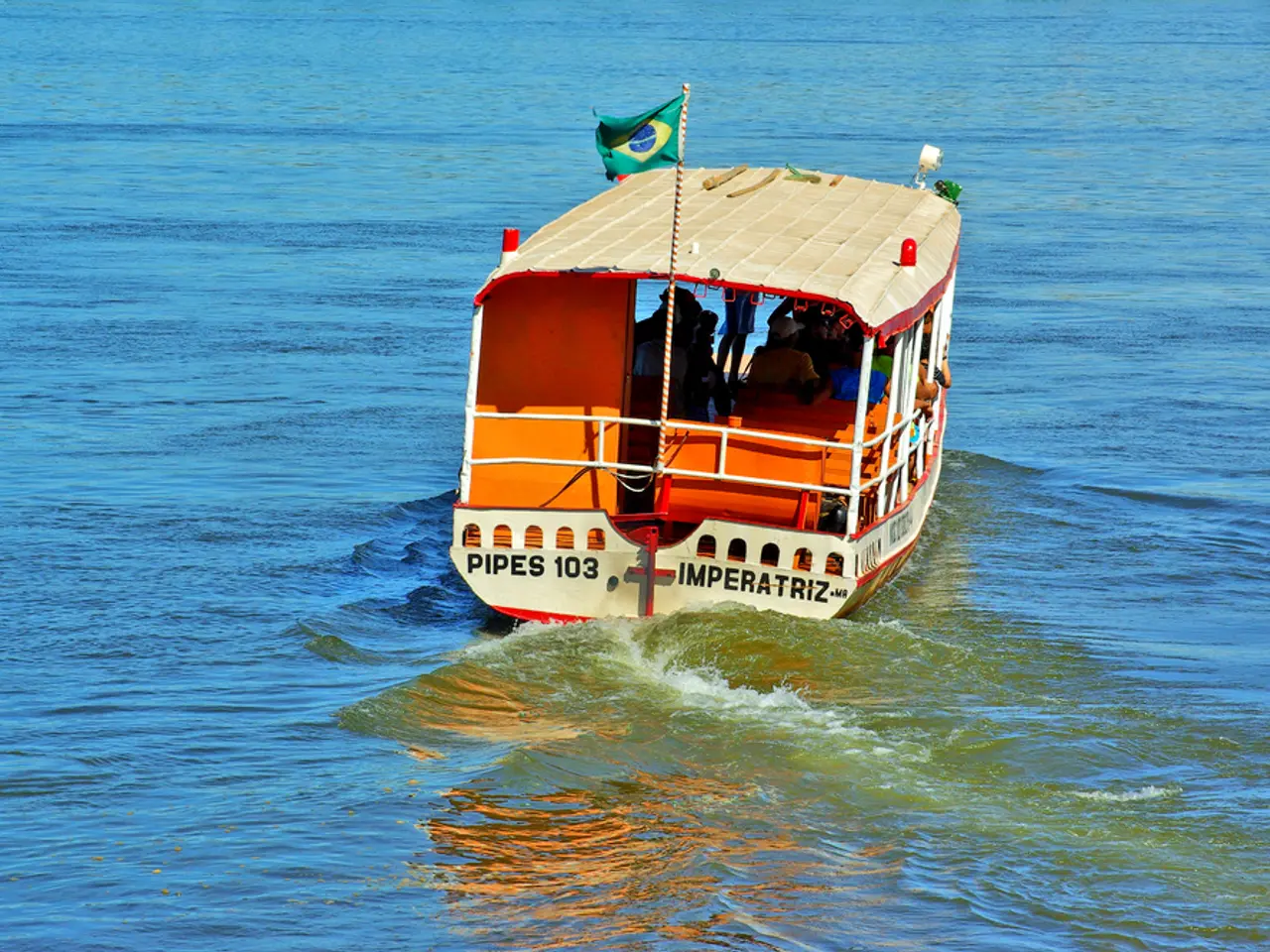Federal investigation into ships flying under countries with lax maritime regulations progresses, as led by the U.S. Federal Maritime Commission.
The Federal Maritime Commission (FMC), an independent federal agency responsible for regulating the US international ocean transportation system, has initiated a nonadjudicatory investigation into the handling of ship flagging countries by foreign ship owners, operators, agents, or masters.
The current investigation, called the Investigation, aims to identify practices that contribute to or endanger a reliable and efficient ocean shipping system in US foreign trade. This includes flags of convenience leading to lower safety, environmental, and labor standards, fraudulent ship registrations, and the perpetuation of a "shadow fleet."
The FMC may conduct such investigations to fulfill its duty to enforce laws and regulations related to ocean shipping and transportation. Approximately 40 comments were submitted during the public comment period for the Investigation, including submissions from major shipping companies, seafarers unions, and international governments.
One of the concerns raised during the comments was the issue of unfair competition, regulatory arbitrage, maritime safety deficiencies, substandard working conditions, wage exploitation, and seafarer rights violations. Many comments expressed support for the Investigation, citing these issues as reasons for their backing.
The FMC may promulgate regulations independently or in response to a petition of any person. If the FMC determines that unfavorable shipping conditions exist, it may order remedial actions such as limiting voyages to US ports, suspending tariffs, or imposing fees.
The FMC also has the ability to direct the Secretary of Homeland Security to refuse the clearance of certain vessels or collect fees as a result of the Investigation. In some circumstances, the Secretary of Homeland Security, or in some cases the Secretary of the Navy, may deny entry of such vessels to a port or the navigable waters of the US or detain such vessels.
The Investigation also seeks to determine "the benefits to international ocean shipping of responsible vessel registration and flagging practices" and "burdens to foreign nations and vessel operators or owners of irresponsible flagging practices." The aim is to identify "responsible" flagging laws, regulations, practices, and proposals and "unfavorable" flagging laws, regulations, and practices.
Notably, the Shipping Deputy Ministry of the Republic of Cyprus expressed concern about being categorized as a "flag of convenience" by the International Transport Workers' Federation. However, the Liberian Ship Registry, the largest flagged oceangoing fleet in the world, stated that the term "flags of convenience" is no longer an accurate short-hand for low cost, poor quality, or regulatory evasion.
The Republic of the Marshall Islands Maritime Administrator refuted a claim included in the Order that the MV Dali, previously registered and flagged in the Marshall Islands, was now registered and flagged in Singapore. The International Chamber of Shipping cautioned against relying on subjective or politically motivated criteria in assessing flag-state performance.
The FMC may request additional comments or gather information through other statutorily authorized compulsory processes during the Investigation. The FMC may have two vacancies among its leadership due to the resignation of Chairman Louis E. Sola on June 30, 2025.
As the Investigation continues, the FMC will work to ensure a fair and transparent process, with the ultimate goal of promoting responsible shipping practices that benefit all parties involved in US foreign trade.
Read also:
- Understanding Hemorrhagic Gastroenteritis: Key Facts
- Stopping Osteoporosis Treatment: Timeline Considerations
- Trump's Policies: Tariffs, AI, Surveillance, and Possible Martial Law
- Expanded Community Health Involvement by CK Birla Hospitals, Jaipur, Maintained Through Consistent Outreach Programs Across Rajasthan







